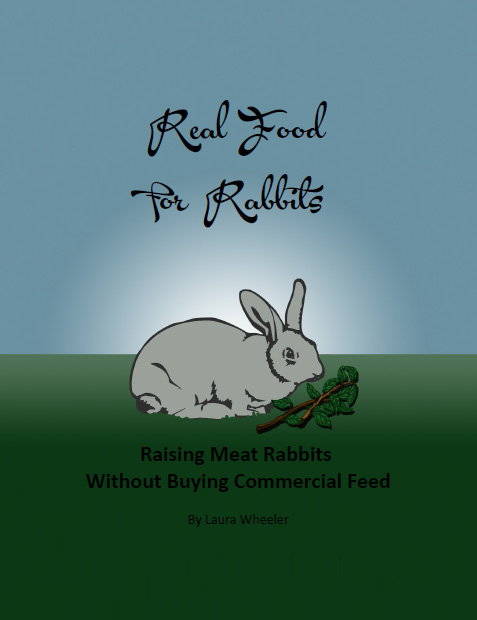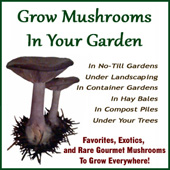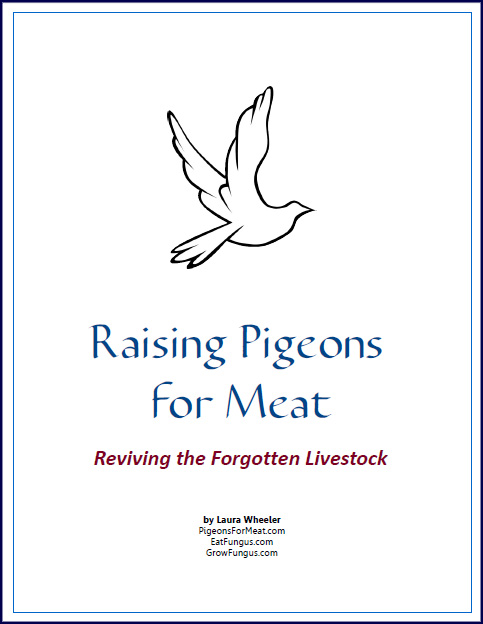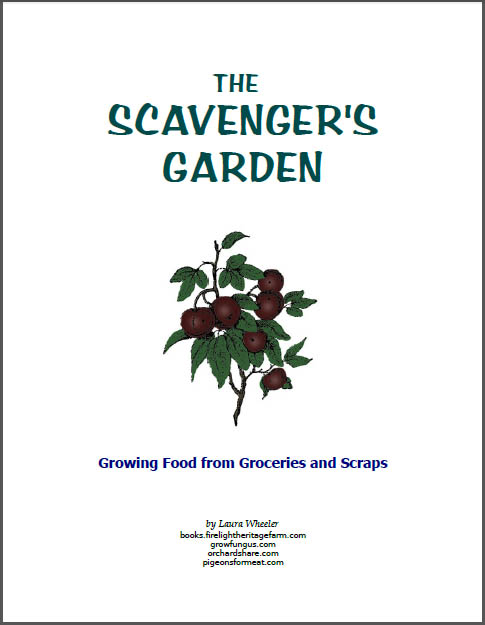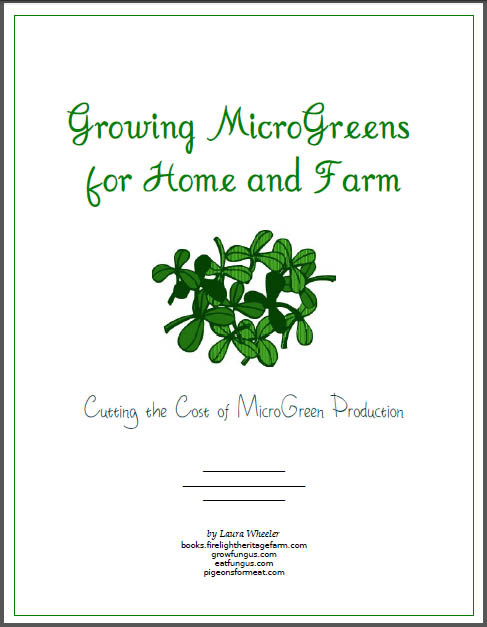 Click to Download Your Free Heritage Pickling and Culturing e-Book Now!
Click to Download Your Free Heritage Pickling and Culturing e-Book Now!
Instant Download, NO Registration Required!
Removing No Till Gardening Roadblocks
Having done no-till gardening in a variety of settings, there is no doubt that it is a superior gardening method. It saves work, increases output, reduces weeds and makes pulling them easier, lets you cultivate mushrooms in your garden (in the same space as the plants), and it saves water. It saves a LOT of water - about 70%.
The principle is simple. Put 2-4" of dry organic matter on the top of the soil, and plant through that. Do not till it. Just pull out last year's plants at the end of the year, smooth the mulch back over, add another layer of organic matter (about 1" per year is ideal, but if you skip a year it won't matter), along with a scattering of manure, and then plant again in the spring. Never till it in. Never disturb the rich layers of soil, never disrupt the earthworm tunnels, and never stir the weed seeds into greater activity.
It cuts out so much work, and provides so much benefit that you'd think that doing it would be a no-brainer. But most people are unwilling to even try it! The reasons continue to surprise me.
We've noticed, as we try to teach this to other people, that there are some specific barriers to actually using it which we'd like to address. And some of them are NOT what you'd think would be barriers.
- Lack of access to woodchips or other appropriate mulch. I can understand this one, because it seems to represent either a huge cost, or an impossible goal in some way or other. Honestly folks, ANY dry organic mulch will do. A blend of coarse and fine mulch is best, but anything will do, including the following:
Grass Clippings
Leaf Litter (including garden debris)
Wood Shaving
Sawdust
Woodchips
Straw (you will get some wheat grass sprouts)
Anything you can get your hands on that will compost down on the top of the soil. Even if you have to purchase wood shavings or cypress chips, or something like that, it is WORTH doing, a little at a time, to convert your garden bed by bed over to a no-till garden. - A belief that wood in the garden will "rob the soil of nitrogen". This is a myth that originated somewhere about 100 years ago at the hands of fertilizer manufacturers, and which the USDA adopted (though they did not test it), and which has been perpetuated by both parties ever since. Decomposing wood does NOT rob the soil of anything. It ADDS nutrients to the soil - indeed, everyone actually KNOWS this, but they don't know they know. The breakdown of organic matter releases nutrients INTO the soil, and does not consume them - it will slowly release nitrogen from the wood into the soil as well. In combination with some manure, the decomposing organic matter -whether it is wood, straw, or whatever, will enrich the soil and provide sufficient nutrients that it will balance out the soil over time. Nothing else is needed. These two things will produce rich and fertile soil and your plants will not be robbed of anything.
- A belief that plowing or digging MUST produce better soil. Some people love work. They are persuaded that any method of gardening that creates MORE work must be a superior method. But this is not so! The history of plowing clearly indicates that plowing (and deep digging) do much more harm than good. They slowly deplete the soil, expose it to further erosion, and increase water use, as well as disturbing the natural lifecycles of earthworms. Digging does not produce better soil. It only produces more work and more problems that have to be dealt with.
- A love affair with tilling equipment. This is a man thing - mostly. Ok, so I know a few women who love to use the tiller (mostly because they bugged their husbands for years to get one and finally spent money on an expensive one and cannot bear the idea that it wasn't even necessary). But it is mostly men who love machinery. They just can't stop tilling up the garden every spring, as a rite of passage, or a service to their wives as they get the garden ready for them so the wife can plant the garden. Stereotypical? Maybe. But common. Some people just can't get past the idea of never firing up the tiller in the spring again. So is there a solution? Of course! A lawn tractor and a trailer, to spread mulch in the fall or spring, and to scatter a layer of manure. Mechanize that process as much as you can, and any machinery loving person will be happy with the substitution.
- A belief that to go no-till you first have to "prepare" the soil. This is particularly funny, because no-till gardening IS the preparation. It loosens the soil, enriches it, balances it, and makes it hold water. Nothing else is needed! Just put down your layer of mulch, and plant. No need to even fertilize the first year! It works on top of sand, clay, gumbo, rocky soil, cracked desert mud, whatever. It works because this is how nature MAKES soil! All you are doing is giving her the means to make it, and then leaving it undisturbed enough that she CAN make it. You still get to USE it, while she is busy making soil.
Plowing the soil just isn't natural. It isn't how nature does it, and she grows things like fury when left alone. She grows things in every climate in the world. If you give her a hand, and do it her way, she'll pitch in with you and magnify your efforts in a way you hardly believe until you see it.
Deep mulch on a garden works in flat gardens, in raised beds, in container gardening, in vertical gardening racks, just anywhere! The same miracle of soil enhancement and water saving is realized in any environment where you are growing plants.
No-till gardening is the best change you can make in how you garden. Combine it with block planting, and raising a few animals alongside (to produce good manure), and you'll discover a whole new potential for your gardens, and a whole new way of thinking about gardening.
